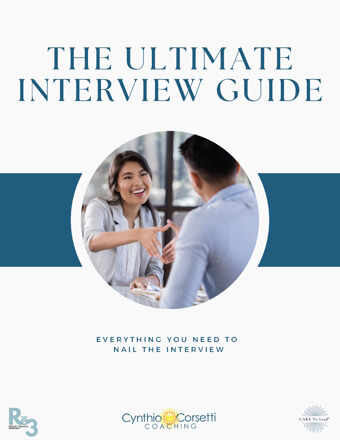If you’re a parent, I know you’ve experienced a kid with attitude. And I can bet you’ve asked a kid to change a bad attitude. It’s that stubborn determination to have autonomy. When you consider that a teenager is testing the waters on adulthood, it makes sense. His attitude at that time is formed by the circumstances of his life. He’s still NOT an adult but wants to feel like one.
For teenagers it’s easy to understand attitude, and we know they’ll outgrow it. But for us as adults it comes to play in a different way. It’s how we perceive our personal circumstances and how we respond to that perception.
Attitude Impacts Life
In my 20-plus years of working with professionals, I’ve watched people lose positions, lose spouses, and destroy relationships with their children – all because of their own attitude.
On the flip side, I’ve seen people do amazing things… overcoming tremendous obstacles. Not because they were better, or smarter, or stronger, but because they had a better outlook.
Some life circumstances can’t change. But our response to the circumstances can.
A Contrast in Attitudes
Let’s look at two examples of people I know. These two people are both kind, amazing, loving people. Both are dealing with serious and life altering medical issues; and are considered disabled by the legal definition.
One, who has always had a negative outlook, and has always felt like a victim, is facing bankruptcy, dealing with depression, and basically giving up. Her physical impairment became the final straw in her negative and victim mentality.
She cannot change her disability. She has accepted this reality with the perception and attitude of a victim. And it affects her quality of life even more than the disability itself.
The other, with just as serious physical disability, has continued to work (albeit in a modified way) through several surgeries and months of recuperating. He’s faced the fact he may never walk again, and he’s recognized his physical limitations mean a very different life for him than he had envisioned. But his attitude has remained positive. He refuses to see himself as a victim.
Both are my friends. One, I genuinely worry about. I wonder if she’ll pull out of her depression; the other, I am inspired by. The biggest difference between them is their attitude.
Negative Thought Habits
To understand how to change a bad attitude, you need to understand what creates an attitude. At what point in our lives do we develop our attitude? And do we actually have the power to change it?
I don’t know much about the childhood of either of these two people. I only know that at some point in their lives they formed a habit. One formed the habit of a victim. She told me stories of being treated poorly by her former employer and how her spouse mistreated her. She said her children don’t understand her or care about her and she believes she has no friends.
For as long as I’ve known her, she’s had a victim mentality. She always felt as if the world had it in for her. By the time her physical problems entered the picture, she had already formed a strong victim habit.
Positive Thought Habits
The other friend used to coach hockey. He taught young boys about team work and about not giving up. He created (and taught) habits of success. His attitude was always one of overcoming.
In the months since his devastating medical diagnosis, he has maintained his habit of a positive attitude. It is that attitude that will carry him forward to face his new life without walking.
I have no doubt he will find happiness and more success. It is already there inside him, demonstrated by his attitude.
Changing Thought Habits
Fortunately, like any habit, good or bad, attitude habits can be changed. It won’t be easy, but it’s doable. It starts by recognizing we have the bad habit. Sometimes we can discover it as easily as reading our own Facebook feed. Do we post negative stories all the time? Do we talk about every headache or muscle pain? Or, do we share uplifting and motivating stories?
What we post can be a reflection on our habits. It’s a good place to start to identify our own habits of thought! We can also use journaling to see how our feelings go from day to day. If you notice weeks on end of negative journal entries, it might be a habit!
Once we identify it, we can make the decision to change it.
Like any change it takes time. You can’t just “decide to be more positive.” You have to work at it. Here are some tips to help you get started.
1. Start a gratitude journal
Each day list items you are grateful for. This starts your day off on a positive mindset instead of negative.
2. Recognize your power over your thoughts
We can’t control the thoughts that run through our minds. But, we can control how much effort we will put into the thoughts. When a thought enters your mind that you know won’t serve you well, make the clear decision to let it go. I often encourage clients to imagine thoughts as items passing by them on a conveyor belt. If a negative thought comes by, let it go and wait for a better one.
3. Don’t engage in negative conversations
Negativity feeds negativity. If you want a positive attitude, hang out with positive people.
Hopefully you never have to face life changing disabilities like my friends did, but you will face adversity. Wrapping your arms around whether your attitude is good or bad will help you face it head on!
Want more strategies beyond how to change a bad attitude? To help improve your career further, look at your online presence too. Start with your LinkedIn profile. Click here to grab my free resource QuickStart Guide to a Winning LinkedIn Profile.

Looking for a career transition or to create a bigger impact in your current career? Speaker and coach Cynthia Corsetti can guide you in Executive Leadership, Career Transition and Interview Skills. Connect with her on Instagram, LinkedIn. and Facebook











Cynthia,
Great article. Starting a “Gratitude Journal” is important, as is the rejection of negative thoughts and avoiding negative conversations.
I find that in this season of political discourse it us imperative that I maintain a positive attitude. If perchance my party does not prevail, I will survive and overcome any adversity.
Thank you, looking forward to TEDx.